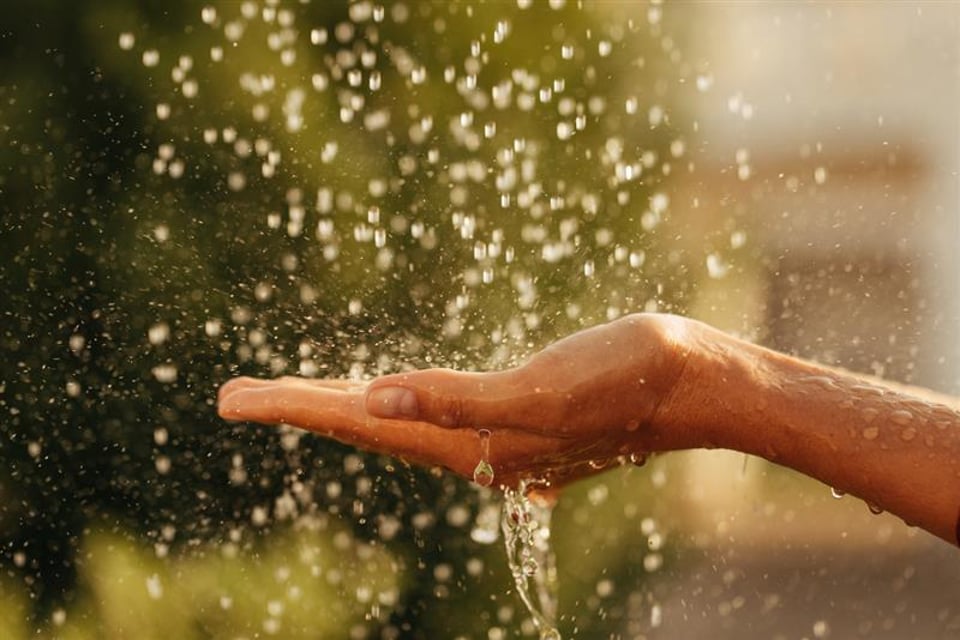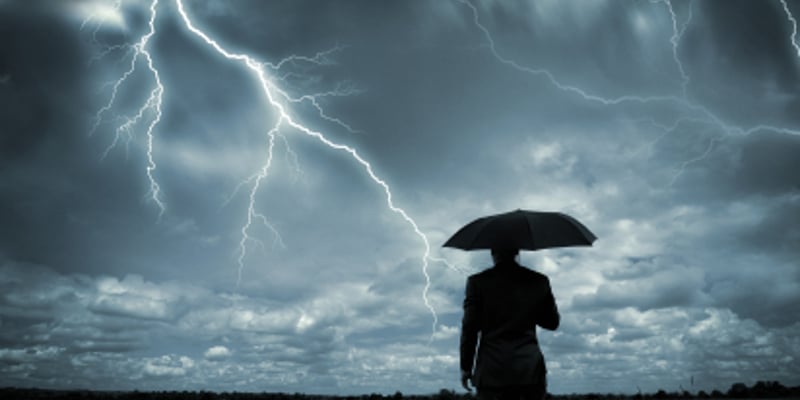Catching Rainwater
Written by Erica Golden
In a spiritually parched world, where will we turn to fill our thirst? God uses a powerful analogy to encourage us to look to Him for life-giving waters.

When God chose Israel to be His holy, special people, He wanted them to be a model nation, properly representing their God—the true God (Deuteronomy 4:6). But they constantly turned from Him, choosing instead to worship the false gods of the nations surrounding them.
Notice the observation God made through the prophet Jeremiah: “Has a nation changed its gods, which are not gods? But My people have changed their Glory for what does not profit. … My people have committed two evils: They have forsaken Me, the fountain of living waters, and hewn themselves cisterns—broken cisterns that can hold no water” (Jeremiah 2:11, 13).
God said Israel was the only nation to forsake its god, when their God was the only God who is actually God! Nations who worshipped false gods were faithful to their gods—why was Israel so fickle?
The specific situation Jeremiah was addressing in this chapter was the fact that the people of Judah were trusting in Egypt and Assyria, not God (verse 18). But the general principle of rejecting the living water and instead going our own way has affected people throughout history.
The cistern
A cistern is used for catching and storing rainwater. In areas where water is in short supply, cisterns are used to collect water during the rainy season for use when it becomes dry. In Israel’s day, a cistern basically consisted of a hole in the ground. The hole grew wider toward the bottom, like a bottle, and was plastered with a sticky lime substance to keep the water from seeping out. During the hot summer months when almost no rain came, the Israelites could draw the stored water out with a bucket.
Cisterns were a necessity in places where there was no dependable water source. But broken cisterns, cisterns in which the lime plaster was cracked and water could seep out, were utterly useless.
And helpful as undamaged cisterns were, if you had access to a river or stream, why would you decide to drink dirty, stagnant water instead?
Why would Judah forsake God—the giver of living, flowing, clean water—for the stagnant water sitting in their muddy, cracked, leaky cisterns? The knowledge of the world is sometimes evil and sometimes not. Like water that has been sitting and brewing in an underground tank, sometimes the world’s knowledge will be full of mosquito eggs and slime, and sometimes it will just be stale-tasting. But it can never impart eternal life.
We are the broken cisterns. Our physical bodies are fragile. They hold minds that have incredible potential, and yet quickly get old and become useless. Human knowledge is fleeting, useless to us beyond the years that we are alive and thinking.
Rejecting the Spirit of God (also known as the tree of life or the fountain of living water) in favor of the spirit of the world (the tree of the knowledge of good and evil or the cistern of dirty water) only serves to compound our vain mortality.
The fountain
As Jesus told a Samaritan woman who was drawing water from a well, “Whoever drinks of this water will thirst again, but whoever drinks of the water that I shall give him will never thirst. But the water that I shall give him will become in him a fountain of water springing up into everlasting life” (John 4:13-14). Another translation gives the phrase as, “Whoever takes a drink of the water that I will give him shall never, no never, be thirsty any more” (Amplified Bible).
Because of Christ’s sacrifice, atoning for the cisterns we broke and the muddied waters we drank, God’s fountain of living water can now flow from our hearts, leading us to eternity as a part of the family of God (John 7:37-39)! The Spirit of God is a piece of God’s eternal nature that He places in us, a seed of eternity that He plants inside our hearts.
The choice
Yet the majority of mankind is not ready to accept God’s Spirit. Most people are comfortable with the cistern. It may be broken, but after all, they built it themselves! It was an accomplishment! The water may be muddy, but it’s more interesting! Who likes that boring, old-fashioned, clear water, anyway?
Jeremiah recorded the essence of the response of Judah to God’s plea to turn back to Him and do good. “And they said, ‘That is hopeless! So we will walk according to our own plans, and we will every one obey the dictates of his evil heart’” (Jeremiah 18:12).
This foul water represents disobedience to God and dishonoring Him while honoring its source: Satan the devil. The end result is further thirst, dehydration and then death. Our breaking, physical bodies (the cisterns in which we try to collect the water of the world) have nothing eternal in them except the Spirit of God—if we choose the fountain instead of the cistern.
In what areas of our lives are we choosing to drink from the broken cistern? Jeremiah gives idolatry and Sabbath-breaking in Judah as two important examples. Are we heeding God’s Word, the Bible, and making decisions based on His will instead of our own?
To learn more about the value of spiritually drinking clean water, read “Life Without a Filter.”
Erica Golden is a member of the Church of God, a Worldwide Association.
Photo credit: iStock.com/CoffeeAndMilk










